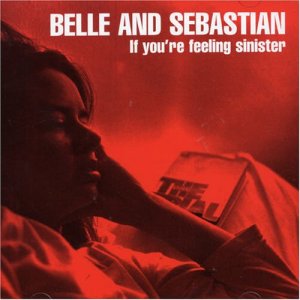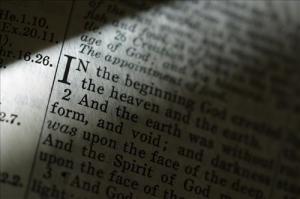// lifelong learning
 My sister, who is coming to the end of her first year studying psychology at Lancaster, rang me up on Wednesday, the day after I wrote the final essay of my degree. “Do you know what I learned today?” she asked, reeling off a psychology fact that i’ve already forgotten (it was something to do with the brain, I think).
My sister, who is coming to the end of her first year studying psychology at Lancaster, rang me up on Wednesday, the day after I wrote the final essay of my degree. “Do you know what I learned today?” she asked, reeling off a psychology fact that i’ve already forgotten (it was something to do with the brain, I think).
My reply?
“Do you know what I learned today? Nothing.”
It’s a reply that I thought would have evoked more joy when I said it – and seriously, don’t get me wrong, where i am now, this post-exam state, this is an awesome state to be in. It’s the first time in about three years that I can truthfully say that I don’t feel guilty at the fact that I’m not learning new things. But it’s also a slightly sad place to be at the same time: because, to be honest, I spent my first day of freedom doing very little apart than playing on the Xbox for about six hours. And for all the strain and stress of the past few years, there’s something exciting about consistently learning new things, and not letting brain, heart, body and soul atrophy…
I met up with a friend last night who told me he had run out of money as he’s been buying theology books; he’s currently working in a temp job, but he spends his evenings reading John Stott and Alistair McGrath as he gets bored in the middle of the day and needs something else to think about. He’s another Oxford graduate, which might explain it, but he also serves as an inspiration: a reminder that this opportunity is something to be prized, because this sort of space to expand your knowledge and your mind is pretty rare, and it’s something pretty valuable when you get it.
I’m the same, really: sooner or later I’m going to need to make a decision as to whether these next few weeks are going to be weeks spent in my lounge playing Fallout 3, or weeks in which I make the most of the time I have left in this university, and that’s a decision that has its wider consequences. In the long run, that comes down to a decision of who to be in the world beyond Oxford University – whether to be somebody who keeps pursuing things, taking risks and stepping out into different areas of life, or somebody who settles for the easy option. And don’t get me wrong, that ‘easy option’ isn’t half appealing.
That’s not meant to be a proposal for a life with no peace, of never learning to rest or sitting in silence. That’s not the point at all, and of course, sometimes there is a place for simply stopping and letting yourself be refreshed. But it would be too easy to switch off at this point, and accept that the ‘learning’ part of this life is over; to stop looking at things with wonder and stop pursuing those new experiences, those things that take your breath away. And that doesn’t have to be in books; for example, I doubt that I’ll be reading anything written before 1997 for a few months, at the very least. But I fully intend to investigate the joys of listening to Modest Mouse and Richard Hawley, to finally get around to watching Mad Men and The Wire and all those other shows that are on my ‘to-do’ list, to listen to those sermon podcasts from John Piper and Pete Greig and others that my Itunes keeps downloading for me…
And I need you to keep me in check on that, too. I didn’t write this blog on Wednesday, because I thought that I had nothing more to say, no thoughts left. I nearly didn’t write it today, because the draw of the Xbox sitting in my lounge was too great. That’s dangerous, a pattern that it is worth fighting. I’m fairly sure that it was New Labour that came up with the term “lifelong learning”, and much as it pains me to use that kind of twee, politically-devised terminology, that’s actually pretty good.
My response to my sister yesterday wasn’t wholly truthful. After speaking to her, I ended up at Hungry, a monthly prayer gathering at my church, and spent a couple of hours around a group of people passionate for God, seeking His will and His intervention in a variety of ways – people who were unwilling to let themselves get stale, unwilling to disengage from the world and take the easy option instead. That’s our story, eventually; that nothing really stands still, even when it’s apparently doing just that. Even inaction is a kind of action, and not necessarily a good kind. Last night was a fitting reminder of that fact, and a much-needed one – the exams may be over, but the learning has really only just begun.
If you’re reading this in the midst of exams, I get that this post probably sounds like a sick joke, and I don’t mean it that way. But bear that in mind when this is all over: relaxation is one thing, but atrophy is another thing entirely.
Now if I can just resist the temptation to spend the rest of the afternoon playing on the Xbox…
 “Without vision, the people perish,” the author of
“Without vision, the people perish,” the author of  At the current moment in time, i have written fourteen out of seventeen of the final essays that will bring my degree to its conclusion. A few weeks ago, i had all my sheets of notes plastered up across my walls; now i have just seven, in preparation for my final paper on Tuesday, having (hopefully) written what i knew about each period down when i sat in that exam hall every morning for the past week. It’s a strange visual emblem, and a strange realisation of the fact that what you’ve dedicated the last three years of your life to is over; yes, you’ve gained from it, and there’s knowledge and skills that come out of that which you’ll use elsewhere, but in two days time you’re going to have to find something else to think about, invest in, worry about and enjoy…
At the current moment in time, i have written fourteen out of seventeen of the final essays that will bring my degree to its conclusion. A few weeks ago, i had all my sheets of notes plastered up across my walls; now i have just seven, in preparation for my final paper on Tuesday, having (hopefully) written what i knew about each period down when i sat in that exam hall every morning for the past week. It’s a strange visual emblem, and a strange realisation of the fact that what you’ve dedicated the last three years of your life to is over; yes, you’ve gained from it, and there’s knowledge and skills that come out of that which you’ll use elsewhere, but in two days time you’re going to have to find something else to think about, invest in, worry about and enjoy… At approximately 1:30pm today it started to rain – real, fat, heavy drops of rain, falling on a crowd of people that must have still been about 350 strong by that point.
At approximately 1:30pm today it started to rain – real, fat, heavy drops of rain, falling on a crowd of people that must have still been about 350 strong by that point. I spent most of the past month and a half typing up essay plans, re-reading primary texts and learning quotations, and so the prospect of sitting down to a half-hour studying John’s gospel in depth, as unexpectedly happened this morning, didn’t exactly appeal at first. A group of us meet up on Wednesday mornings to eat breakfast together and pray, and today we tried out an ancient way of reading that’s known as
I spent most of the past month and a half typing up essay plans, re-reading primary texts and learning quotations, and so the prospect of sitting down to a half-hour studying John’s gospel in depth, as unexpectedly happened this morning, didn’t exactly appeal at first. A group of us meet up on Wednesday mornings to eat breakfast together and pray, and today we tried out an ancient way of reading that’s known as  Interesting facts from revision this week: did you ever realise that the 1647 Westminster Confession was put together with a Civil War raging on all sides? Yep, *that* Westminster Confession. Out of which came the Westminster Shorter Catechism – the one whose start so many people know, the one that asks “what is the chief end and purpose of man?” and meets the reply, “to glorify God and enjoy Him forever”.
Interesting facts from revision this week: did you ever realise that the 1647 Westminster Confession was put together with a Civil War raging on all sides? Yep, *that* Westminster Confession. Out of which came the Westminster Shorter Catechism – the one whose start so many people know, the one that asks “what is the chief end and purpose of man?” and meets the reply, “to glorify God and enjoy Him forever”.